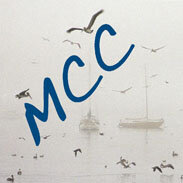Habitat/Vegetation Management
in Midcoast Parks & Wildland Preserves
Pillar Point is a biodiversity hotspot. Coastal terrace prairie communities support the highest plant diversity of all North American grasslands. Impacted by farming and development, only 10% of native California coastal prairie habitat remains.
Native plant species foster diversity within an ecosystem. They support more insects and animal communities than non-natives. Native plant populations are kept under control by natural predators, and they cooperate with other natives to form rich habitat spaces that are unique to the Bay Area.
Invasive exotic (non-native) weeds are ranked second only to development in destroying native plant and animal habitats. Noxious weeds crowd out native plants, harm animal habitats, increase fire danger, and impose tremendous costs on human communities. Effective weed management depends on four key strategies: prevention, early detection, control, and restoration.
California Invasive Plant Council — Cal-IPC — is a non-profit that provides science-based tools and information to help land managers and others protect California’s environment and economy from invasive plants.
Cal-IPC Policy on Use of Herbicides for Controlling Invasive Plants, approved 3/1/24
Don’t Plant a Pest – alternatives for invasive garden plants for Bay Area
Weed Workers' Handbook
University of California Integrated Pest Management — UC-IPM — The program defines IPM as an ecosystem-based strategy that focuses on long-term prevention of pests or their damage through a combination of techniques such as biological control, habitat manipulation, modification of cultural practices, and use of resistant varieties. Pesticides are used only after monitoring indicates they are needed according to established guidelines, and treatments are made with the goal of removing only the target organism. Pest control materials are selected and applied in a manner that minimizes risks to human health, beneficial and nontarget organisms, and the environment.
San Mateo County Local Coastal Program (LCP)
Policy 7.52: Require public agencies, to the point feasible, to remove the undesirable pampas grass and French, Scotch, and other invasive brooms from their lands.
Weed Management Area of San Mateo County — WMA — is a regional coalition, led by the County Agricultural Commissioner’s office, and comprised of members from county, state and local agencies, private landowners, agricultural businesses, and environmental organizations committed to improving the economic, aesthetic, and environmental health of San Mateo County by minimizing the negative effects of invasive plant species. The WMA promotes and coordinates efforts to prevent the introduction, establishment and spread of noxious weeds.
Noxious Weed Brochure — Strategic Plan 2023-2027
San Mateo County Parks Dept:
Natural Resource Management
SMC Parks Integrated Pest Management Program (with link to 1/31/2024 webinar)
Volunteer Stewardship
Routine Maintenance Program Manual 2020 (Parks & Public Works) — Chapter 6 Vegetation
SMC Dept of Public Works (DPW): 2012 Roadside Vegetation Management Study recommends implementing an Integrated Pest Management (IPM) program. Board Resolution 071857, adopted 3/13/2012, orders that DPW continue to manage roadside vegetation through a combination of mowing and spraying, but supplement its practices with the enhancements identified in the Department’s program enhancement plan. The current version of that plan is the Routine Maintenance Program Manual, Chapter 6, also listed under County Parks.
Midpeninsula Regional Open Space District — MROSD
Resource Management Policies 2022
Integrated Pest Management Program 2019
Golden Gate National Recreation Area (GGNRA) — Rancho Corral de Tierra
Montara Prairie Renewal Project website 2024-2026
Vegetation Stewardship
2021-23 jubata grass treatment with glyphosate at Rancho Corral de Tierra with grant funding from CA Dept of Food & Agriculture (CDFA)
CA State Parks: Natural Resource Management
2019-20 jubata grass treatment with glyphosate on Montara Mountain with grant funding by CDFA.
San Mateo Resource Conservation District — RCD
Projects — including vegetation/weed management
10/20/15 Community Forum on RoundUp
Green Foothills Advocacy Highlights, March 2024: Herbicide Use and Invasive Plants: An Important Tool to Maintain Biodiversity in San Mateo County Parks
Midcoast Community Council — MCC
12/13/23 MCC request for information re pesticide use in SMC Parks. 3/20/24 Reply from County Parks
5/11/16 MCC letter in support of coordinated interagency effort to eradicate invasive jubata/pampas grass in the Midcoast. Replies from GGNRA & GCSD
Jubata grass (Cortaderia jubata) at Rancho Corral de Tierra 2022, pre-treatment.
The large invasive perennial bunchgrass from South America produces thousands of wind-borne seeds that can disperse over miles.


